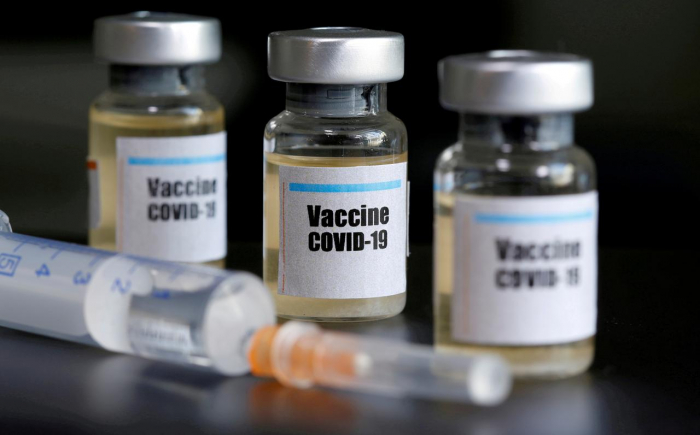Final results from the trials of Moderna’s vaccine against Covid-19 confirm it has 94% efficacy and nobody who was vaccinated with it developed severe disease, says the company, kickstarting the approval process with regulators around the world, the Guardian reports.
The US company is submitting the data to the regulators in the US, Europe and the UK for an emergency licence. It expects the Food and Drug Administration in the US to consider it at its meeting on 17 December, Moderna said.
The UK has bought 7m doses of the vaccine – 5m on the day Moderna announced its interim result of 94.5% efficacy and a further 2m last week. But supplies of the vaccine to the UK are not expected until March. Moderna, based in Massachusetts, has received $2.48bn in US federal funds and was a key part of the Trump administrations Operation Warp Speed.
Although it has done deals around the world, the US will get access first. Moderna said it expected to have 20m doses of its vaccine ready for use in the US by the end of this year. In August, the US bought 100m doses with an option on 400 million more. Moderna says it is on track to manufacture 500 million to 1 billion doses globally in 2021.
Like Pfizer/BioNTech, Moderna has used novel mRNA (messenger RNA) technology to develop its vaccine, involving the genetic code of the virus rather than any killed or weakened part of it. The two companies have announced remarkable and very similar results. Pfizer’s final data analysis gave its vaccine 95% efficacy.
Moderna becomes the third company to pass its data to the regulators for approval, after Pfizer and then Oxford University/AstraZeneca. The UK vaccine has 70% efficacy overall, although among a sub-set of volunteers given a lower dose, the efficacy surprisingly rose to 90%. That finding will now be trialled in the United States, amid concerns that it may be linked to the younger age of the volunteers, who were all under 55 in that arm of the trial.
However, 70% efficacy is enough to be very useful in a pandemic, particularly in countries without the ultra cold freezers, at minus 70 to minus 80 C, that are necessary for the Pfizer vaccine. Moderna’s vaccine is said to be stable for a month at ordinary fridge temperatures once out of the freezer, but the cost will be prohibitive in many parts of the world. In August, the company said it was charging $32 to $37 a dose and defended its right to make commercial returns. The Oxford vaccine will cost less than £3 a dose. The UK has bought 100m doses of the Oxford vaccine, which will be a core part of its mass immunisation plans.
Moderna’s phase 3 analysis involved 30,000 people given the vaccine in the US, of whom 196 became ill. Thirty people became severely ill and one died, but none of those had been given Moderna’s vaccine. The trials included substantial numbers of people in the most at-risk groups, with 7,000 people over 65 and more than 5,000 younger people with chronic diseases, such as diabetes, severe obesity and cardiac disease.
The study included 11,000 people from black, Asian and minority ethnic communities, the company said, which is 37%, the same proportion as in the US population. There were 33 older adults and 42 people from BAME backgrounds in the final analysis. The company said there were no serious side-effects. The most common included sore arms, headaches and fatigue.
The full trial data has not been released, but will be published in a peer-reviewed journal in due course, Moderna said.
“This positive primary analysis confirms the ability of our vaccine to prevent Covid-19 disease with 94.1% efficacy and importantly, the ability to prevent severe Covid-19 disease. We believe that our vaccine will provide a new and powerful tool that may change the course of this pandemic and help prevent severe disease, hospitalisations and death,” said Stéphane Bancel, chief executive officer of Moderna.
Stephen Evans, professor of pharmacoepidemiology, London School of Hygiene & Tropical Medicine, said it was important not to pay too much attention to the exact percentage value of the efficacy.
“While the best estimate is 94.1% against all Covid-19 disease, the statistical uncertainty in this is such that the data are compatible with a true efficacy of about 87%,” he said. “This is of course, still a very good efficacy. Similarly, the 100% efficacy against more severe disease is compatible with an efficacy of 90% again, this is very good and is some evidence that severe as well as mild disease is prevented.”
There was no evidence the vaccine performed worse in older adults, he said, which was encouraging.
Azra Ghani, professor of infectious disease epidemiology at Imperial College London, said it was good news that nobody given the vaccine developed severe disease. “Whilst this does not exclude some risk of severe disease after vaccination given the relatively small number of severe cases, these results suggest very high efficacy (>85%) against this endpoint,” she said.
She looked forward to the full results, which would include some data on whether the vaccine prevents asymptomatic infections. “Efficacy against this would be very welcome as it would give the first indication of the broader indirect impact that widespread vaccination could have in reducing onward spread,” she said.
















































